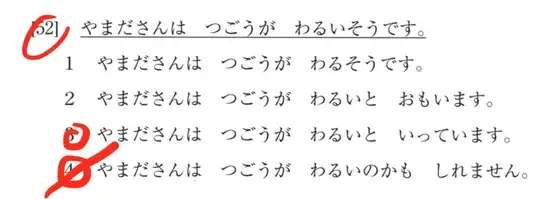そう has two different meanings:
そう after a 終止形 ("sentence-ending" form) is a hearsay marker, and is translated as "I've heard ...", "(He/She) said ..." or "People say ...". Here, 終止形 includes:
- dictionary form of a verb
来るそうです。 I heard he will come.
- dictionary form of an i-adjective
おいしいそうです。 I heard it's delicious.
- だ (after a noun or a na-adjective)
学生だそうです。 I heard she's a student.
簡単だそうです。 I heard it's easy.
- some auxiliaries that can end a sentence
食べられるそうです。 I heard it's edible.
彼が書いたそうです。 I heard he wrote it.
彼がやらせるそうです。 I heard he would make her do it.
So the original sentence means the same thing as Option 3.
Please do not confuse this そう with そう meaning "to seem", "to look" or "to be about to ~"
来そうです。 Looks like he's coming.
おいしそうです。 Looks delicious.
簡単そうです。 It seems easy.
食べられそうです。 This seems to be edible.

